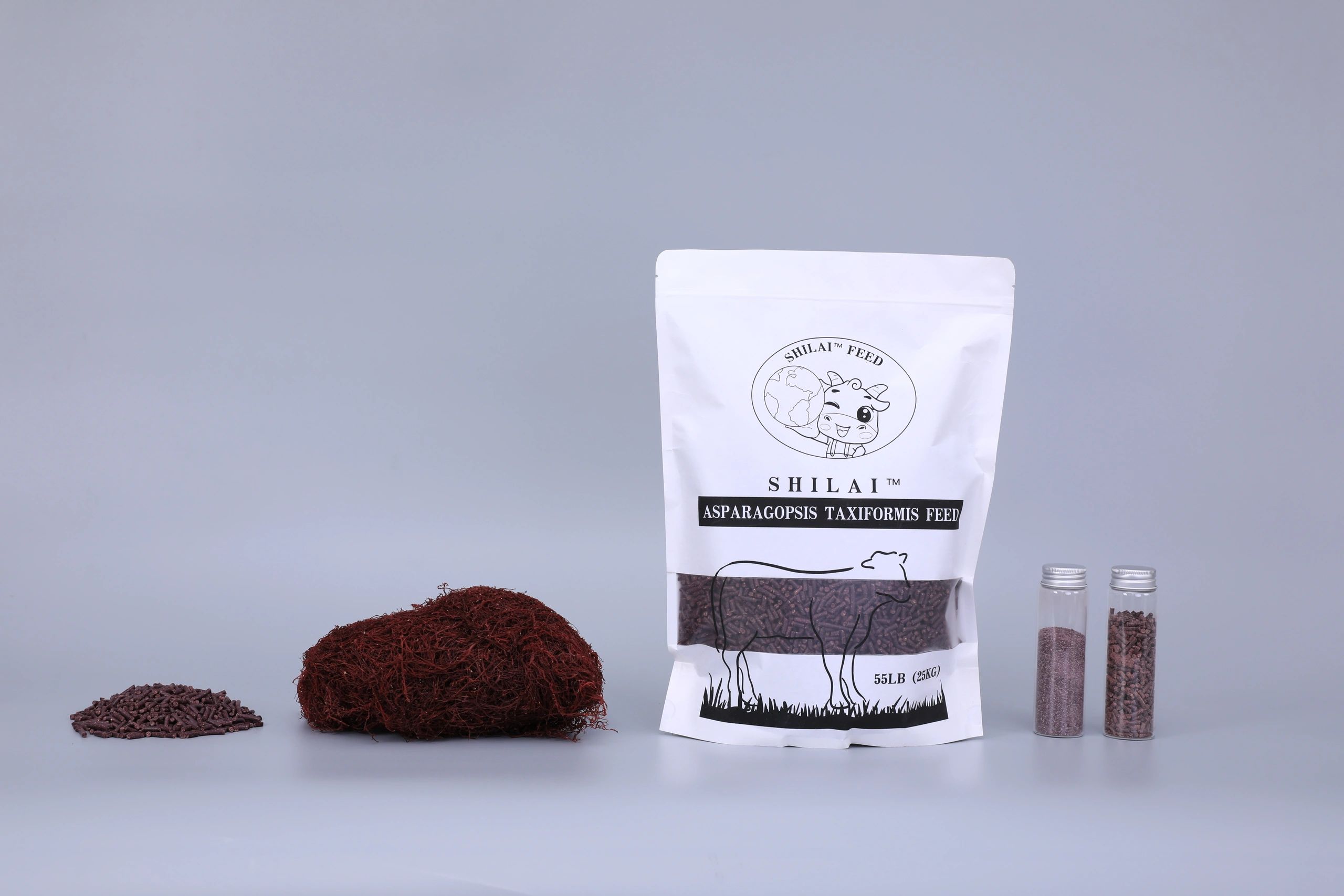The agriculture sector worldwide produces a notable share of greenhouse gases, mainly attributable to livestock production.
The climate impact of methane surpasses that of carbon dioxide on a per-molecule basis, underscoring the urgency to reduce it.
The red seaweed Asparagopsis taxiformis is under study for its capacity to reduce methane emissions from livestock digestion.
A unique chemical in the seaweed interferes with rumen methanogens, resulting in measurable decreases in methane production.
Formulating feeds with Asparagopsis taxiformis has yielded encouraging outcomes in early trials, pointing to a practical route for cutting agricultural greenhouse gases.
- Furthermore, Asparagopsis taxiformis delivers a range of complementary benefits beyond methane mitigation.
- Stronger digestive performance in animals
- Creation of new jobs and revenue streams in the seaweed industry
Additional scientific and practical work is necessary, but Asparagopsis taxiformis stands out as a promising pathway to greener livestock production.
Unlocking the Potential of Asparagopsis taxiformis Powder as a Feed Additive
Asparagopsis taxiformis prepared as powder or extract could enable broad deployment as a functional feed additive.
The alga packs biological and nutritional characteristics that support better animal outcomes and farm results.
Using A. taxiformis powder in feed recipes has reduced methane in pilot work while also contributing necessary trace elements.
Sustained R&D is needed to finalize dosage regimes, processing protocols, and long-term performance and safety evidence.
Asparagopsis taxiformis: Driving New Models of Sustainable Livestock Production
Asparagopsis taxiformis has come to prominence as a candidate solution for environmental concerns in animal agriculture.
By cutting methane emissions when added to feed, the algae could help farmers materially lower their environmental footprint.
Beyond emissions, studies indicate Asparagopsis may also improve animal health and productivity metrics in some contexts.
Broader and longer studies are essential for confirmation, although early evidence is strongly positive.
Methane Reduction Through Asparagopsis Feed Additive
Asparagopsis is recognized as a strong candidate for reducing the methane burden from ruminant livestock.
Asparagopsis contains active molecules that alter rumen microbial activity and limit methane generation.
- Controlled research has shown notable methane declines in animals fed Asparagopsis in trial settings.
- The strategy of adding Asparagopsis to feed aligns with sustainable agricultural practices for emissions reduction.
- Producers and ranchers are beginning to consider piloting Asparagopsis in their feeding regimens.
Asparagopsis: The Seaweed Transforming Livestock Production
A new sustainability solution is emerging from marine resources: Asparagopsis taxiformis offers methane mitigation potential for livestock.
- Studies incorporating Asparagopsis have recorded meaningful methane decreases, signaling potential for environmental impact reduction.
- This advancement could support sustainable food systems by reducing emissions without compromising animal nutrition.
As climate policy and industry responses develop, Asparagopsis offers a promising option to reduce livestock methane emissions.
Streamlining Asparagopsis taxiformis Feed Applications to Maximize Methane Benefits
Scientists are evaluating processing and formulation variables to boost the practical efficacy of A. taxiformis in diets.
The Science Behind Asparagopsis taxiformis's Methane-Lowering Effects
The methane-lowering phenomenon is linked to the seaweed’s interaction with methanogenic archaea in the rumen, reducing their activity.
The seaweed’s methane reduction is associated with bromoform compounds, which are under active investigation for mechanisms and risk assessment.
Using Asparagopsis in Feed Formulations to Promote Sustainable Farming
Its dual role as a nutrient source and methane inhibitor supports its use as a component in sustainable feed blends.
The seaweed’s inclusion can enrich feed nutrient profiles, support gut health, and exhibit antimicrobial or immune-supportive properties.
A Sustainable Food System Enabled by Asparagopsis taxiformis
Asparagopsis taxiformis is emerging as a notable marine-derived option to help address climate and environmental challenges in food systems.
- Furthermore, Asparagopsis taxiformis is nutrient rich and can add valuable components to animal feeds.
- Scientists and industry experts are actively exploring its uses across aquaculture, agriculture, and food production sectors.
Mainstreaming Asparagopsis use has the potential to achieve measurable reductions in the environmental effects of livestock agriculture.
Animal Health and Productivity Gains from Asparagopsis Feed Inclusion
Asparagopsis is attracting interest as a supplement that can lower methane and concurrently bolster animal health and efficiency.
Use in diets has been associated with improved nutrient absorption and feed conversion, which can support weight gain and overall condition.
Additional functional properties such as antioxidant or immunomodulatory effects have been observed that could strengthen animal health.
Increasing focus on sustainable production makes Asparagopsis a compelling candidate as evidence and supply chains mature.
Asparagopsis in Methane-Cut Feeds to Help Achieve Carbon Goals
The farming sector faces mounting pressure to shrink its carbon footprint, and Asparagopsis offers a plausible mitigation pathway.
- Researchers suspect the algae’s molecules interfere with the biochemical steps of methanogenesis, reducing methane generation.
- Multiple trials have reported encouraging outcomes, with pronounced methane declines in animals fed Asparagopsis.
This innovative approach not only offers a greener feed option but also the potential to transform food production toward climate-resilient outcomes.
